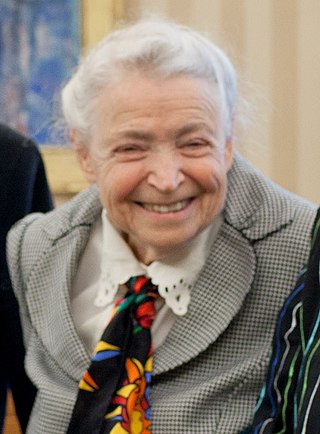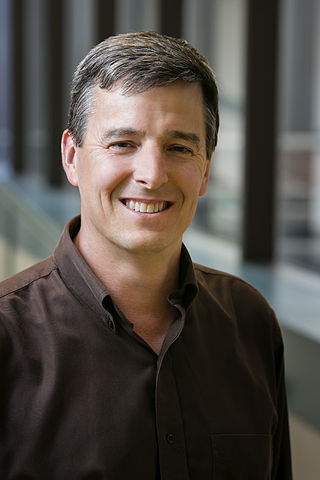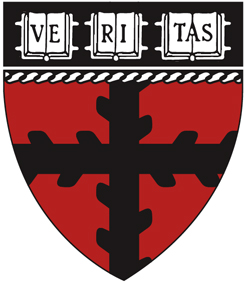Related Research Articles
Engineering physics (EP), sometimes Engineering science, refers to the study of the combined disciplines of pure science such as physics, mathematics, chemistry or biology in combination with engineering disciplines. The latter may include computer, nuclear, electrical, aerospace, medical, materials or mechanical engineering.

Mildred Dresselhaus, known as the "Queen of Carbon Science", was an American physicist, materials scientist, and nanotechnologist. She was an institute professor and professor of both physics and electrical engineering at the Massachusetts Institute of Technology. She also served as the president of the American Physical Society, the chair of the American Association for the Advancement of Science, as well as the director of science in the US Department of Energy under the Bill Clinton Government. Dresselhaus won numerous awards including the Presidential Medal of Freedom, the National Medal of Science, the Enrico Fermi Award, the Kavli Prize and the Vannevar Bush Award.

Leo Philip Kadanoff was an American physicist. He was a professor of physics at the University of Chicago and a former president of the American Physical Society (APS). He contributed to the fields of statistical physics, chaos theory, and theoretical condensed matter physics.

The Fannie and John Hertz Foundation is an American non-profit organization that awards prestigious fellowships to Ph.D. students in the applied physical, biological and engineering sciences. The fellowship provides students with up to $250,000 of support over five years, giving them flexibility and the ability to pursue their own interests, as well as mentoring from alumni fellows. Fellowship recipients pledge to make their skills available to the United States in times of national emergency.

John A. Rogers is a physical chemist and a materials scientist. He is currently the Louis Simpson and Kimberly Querrey Professor of Materials Science and Engineering, Biomedical Engineering, and Neurological Surgery at Northwestern University.
The Harvard–MIT Program in Health Sciences and Technology, or HST, is one of the oldest and largest biomedical engineering and physician-scientist training programs in the United States. It was founded in 1970 and is the longest-standing collaboration between Harvard University and the Massachusetts Institute of Technology (MIT). Within the program, graduate and medical students are registered with both MIT and Harvard and may work with faculty and affiliated faculty members from both communities. HST is a part of MIT's Institute for Medical Engineering and Science and forms the London Society at Harvard Medical School.
Carl M. Bender is an American applied mathematician and mathematical physicist. He currently holds the Wilfred R. and Ann Lee Konneker Distinguished Professorship of Physics at Washington University in St. Louis. He also has joint positions as professor of physics at the University of Heidelberg and as visiting professor of applied mathematics and mathematical physics at Imperial College, London.
Jacob Pieter Den Hartog was a Dutch-American mechanical engineer and Professor of Mechanical Engineering at MIT.

The Harvard John A. Paulson School of Engineering and Applied Sciences (SEAS) is the engineering school within Harvard University's Faculty of Arts and Sciences, offering degrees in engineering and applied sciences to graduate students admitted directly to SEAS, and to undergraduates admitted first to Harvard College. Previously the Lawrence Scientific School and then the Division of Engineering and Applied Sciences, the Paulson School assumed its current structure in 2007. David C. Parkes has been its dean since 2023.

George B. Field was an American astrophysicist.

Cherry A. Murray is an American academic who is professor of physics and the director of the Biosphere2 Institute at the University of Arizona at Tucson. She is the Benjamin Peirce Professor of Technology and Public Policy emerita at, and former dean of, the Harvard School of Engineering and Applied Sciences (SEAS).

The Skolkovo Institute of Science and Technology, or Skoltech, is a private institute located in Moscow, Russia. Skoltech was established in 2011 as part of a multi-year partnership with the Massachusetts Institute of Technology (MIT) Globally, the university in 2023 was ranked # 702 in the world by US News & World Report. It was among the number 65 young university in the world according to Nature Index in 2021. That same year Skoltech entered the subject ranking in physics among young universities for the first time, and named a rapidly rising university. In February 2022 MIT ended its partnership with Skoltech in protest of the Russian invasion of Ukraine.

Chinedum Osuji is the Eduardo D. Glandt Presidential Professor and the departmental chair of chemical and biomolecular engineering (CBE) at University of Pennsylvania. He is also a former Taekwondo Olympian and represented Trinidad and Tobago. His laboratory works on polymers and soft materials for functional application including liquid filtration. He is the associate editor of the journal Macromolecules.
Radhika Nagpal is an Indian-American computer scientist and researcher in the fields of self-organising computer systems, biologically-inspired robotics, and biological multi-agent systems. She is the Augustine Professor in Engineering in the Departments of Mechanical and Aerospace Engineering and Computer Science at Princeton University. Formerly, she was the Fred Kavli Professor of Computer Science at Harvard University and the Harvard School of Engineering and Applied Sciences. In 2017, Nagpal co-founded a robotics company under the name of Root Robotics. This educational company works to create many different opportunities for those unable to code to learn how.
Ali Suphi Argon was a Turkish-American engineer, and the Quentin Berg Professor Emeritus at the Massachusetts Institute of Technology.

David R. Clarke is a material scientist and the inaugural Extended Tarr Family Professor of Material Science and Applied Physics at Harvard John A. Paulson School of Engineering and Applied Sciences (SEAS). He is the principal investigator of the Materials Discovery and Applications Group.
A. Douglas Stone is the Carl Morse Professor of Applied Physics and Physics at Yale University. He was the 2014 recipient of the Phi Beta Kappa Award in Science for his book Einstein and the Quantum: The Quest of the Valiant Swabian.
Christopher A. Schuh is an American metallurgist. He is the current dean of the McCormick School of Engineering at Northwestern University. Previously, he was the Danae and Vasilis Salapatas Professor in Metallurgy in the Department of Materials Science and Engineering at the Massachusetts Institute of Technology, where he spent 21 years.

Prineha Narang is an American physicist and computational material scientist. She is a Professor of Physical Sciences and Howard Reiss Chair at the University of California, Los Angeles (UCLA). Narang currently serves as a U.S. Science Envoy approved by the Secretary of State to identify opportunities for science and technology cooperation. Before moving to UCLA, she was first an Environmental Fellow at Harvard University Center for the Environment and then an Assistant Professor in the John A. Paulson School of Engineering and Applied Sciences at Harvard University. Narang’s work has been recognized internationally by many awards and a variety of special designations, including the Mildred Dresselhaus Prize, the 2021 IUPAP Young Scientist Prize in Computational Physics, a Friedrich Wilhelm Bessel Research Award from the Alexander von Humboldt Foundation, and a Max Planck Sabbatical Award from the Max Planck Society. Narang also received a National Science Foundation CAREER Award in 2020, was named a Moore Inventor Fellow by the Gordon and Betty Moore Foundation for the development for a fundamentally new strategy for single molecule sensing and environmental toxin metrology using picoscale quantum sensors, CIFAR Azrieli Global Scholar by the Canadian Institute for Advanced Research, and a Top Innovator by MIT Tech Review. Narang was awarded a Guggenheim Fellowship in 2023.
References
- ↑ "Carl V. Thompson". mit.edu. Retrieved April 26, 2017.
- ↑ "Carl V. Thompson". mit.edu. Retrieved April 26, 2017.
- ↑ "Carl V. Thompson". mit.edu. Retrieved October 20, 2019.